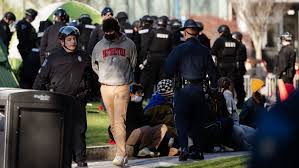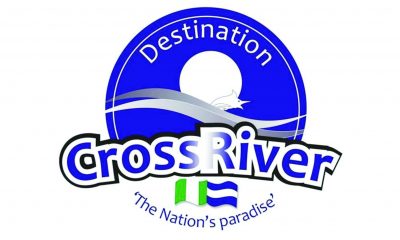Maritime
NIMASA Hails Navy’s Cooperation In Piracy Reduction
The Director General of the Nigerian Maritime Administration and Safety Agency (NIMASA), Dr Bashir Jamoh, has commended the Nigerian Navy for its cooperation with the Agency in reducing sea piracy and all forms of crimes and criminality in the Nation’s waterways.
Jamoh said collaboration with the Nigerian Navy has played a key role in the achievements of his administration in terms of maritime security in Nigerian waters and the Gulf of Guinea (GoG)
He stated this while receiving the Flag Officer Commanding (FOC) Western Naval Command, Rear Admiral Mustapha Hasssan, and a delegation of Senior Naval officers in Lagos.
The DG said the Nigerian model is now being adopted in other countries, adding that the change in narratives about security in Nigerian waters from the era of over 26 piracy incidents and negative media exposure, to no single piracy incident in Nigerian waters for almost two years now, is a direct product of effective collaboration of both agencies.
“Collaboration with the Nigerian Navy is largely responsible for the confidence of stakeholders in the current management of the Agency.
“I was in Brazil last week, the South Americans and even our neighbours, such as Ghana, are eager to learn how we arrived at this MARAD-NAVY collaboration yielding successes.
“Just imagine that the negative media exposure in 2019-2020 about prevalent piracy and criminal activities in Nigerian waters had continued, you can only imagine where Nigeria would have been by now. I am glad we sought and got collaboration with the navy”, he said.
He said the Agency is eager to ensure Nigerians enjoy benefits accrued from the blue economy.
Earlier, the FOC noted the need to sustain information sharing between NIMASA and the Nigerian Navy.
He commended NIMASA for the support to the Western Naval Command and requested NIMASA to support “Operation Water Guards” to combat smuggling around the Badagry channel.
Maritime
Unfair Treatment Of Seafarers Bothers IMO

Renowned global Maritime Organisation, the International Maritime Organisation (IMO), has expressed worries over what it christened unfair treatment of Seafarers globally.
Secretary General of IMO, Arsenio Dominguez, stated this recently, saying “over rising cases of unfair treatment of seafarers were regrettable”.
Dominguez said there was a particularly worrying geopolitical context in which recent distressing events have taken place, adding that “the safety and wellbeing of seafarers must remain of utmost importance”.
He reiterated his call for the immediate release of the crew of Galaxy Leader, a car carrier seized by Houthis in November 2023. Noting the recent letter from the shipping industry to the Secretary General of the United Nations, Dominguez appealed for the release of container ship MSC Aries and its crew after the ship was seized by Iranian authorities earlier in April 2024, saying he was in constant search for solutions, continuing conversations with the UN and other stakeholders.
“The plight of the seafarers affected by these incidents must not be forgotten and it is incumbent upon us to pursue every available avenue to secure their safe return to their loved ones and their livelihoods.
“International shipping must not be targeted and used as a means of exerting pressure in geopolitical crises.
“I call on you here to continue your efforts to return to normalcy and for ships and seafarers to continue doing their work without threats and interruptions.
By: Chinedu Wosu
Maritime
Drydock To Complete LAGFERRY Maintenance, Aug -Commissioner

The Lagos State Government has said the maintenance services of the Lagos State Ferry Services (LAGFERRY) boats to be carried out by Drydock will be completed in August.
Commissioner for Transportation, Mr Oluwaseun Osiyemi, disclosed this during a presentation of the Lagos State Traffic Management and Transportation Sector activities.
The event was in commemoration of the State Governor, Babajide Sanwo-Olu’s first year and second term in office.
“The drydock project, which is 30 per cent done, is geared toward ensuring safety of passengers”, Osiyemi said.
The Commissioner noted that the installation of Closed Circuit Television cameras on LAGFERRY boats was on course and the installation of 15ft by 128 inches-led digital display signs for LAGFERRY e-fleet surveillance system.
“Retrofitting, repair of boats and installation of new engines was also carried out to ensure optimal efficiency and safety”, he said.
Osiyemi noted that LAGFERRY is currently running a public water transportation in 24 routes from 16 terminals/jetties through its 17 commercial boats.
According to him, the agency has recorded over two million ridership from inception till date.
“Charged with the responsibility of providing a viable alternative to road transportation, the agency has become a standard for other boat operators to emulate.
“We have a world-class water transportation system that offers safe, fast and reliable mode and improved technologies for excellent customer experience.
“Toward promoting tourism and increase in ridership, the agency created some awareness windows to make water transportation a more attractive option for commuters.
“This is also to optimise the blue economic potential of Lagos State through these laudable events.
“Ignite the waterways was introduced on January 6, 2024; Exclusive Love Lagos-Love Waterways edition was a lovely programme delivered in February, and FUJI”, he added.
He noted further that government was partnering with the private sector for the production of ferries that would help bring down the cost.
The State Government, he said, would ensure that the boats are produced in accordance with international safety standards and regulations.
Osiyemi added that 25 of such boats would be inaugurated for use in the next few weeks.
He added that seven jetties and terminals were inaugurated between May 24 and May 26, 2023 for improved operations of the Lagos State Waterways Authority (LASWA).
“These jetties and terminals are located in different parts of the state namely: Ilashe Amuwo-Odofin, Ijegun Egba, Amuwo-Odofin, Marina, Badagry, Isalu Ajido, Offin Ikorodu, Ito Omu Epe, and Liverpool, Apapa”, he stated.
Recall that on April 19, 2024, he said Ibeshe Ferry Terminal was officially handed over to Thesaurus Bay by LASWA, and a floating pontoon that would ensure safe embarking and disembarking of passengers was also installed.
By: Chinedu Wosu
Maritime
Sierra Leone Assures Support For MOWCA’s Safety Navigation

The Secretary General Maritime Organisation of West and Central Africa (MOWCA), Dr Paul Adalikwu, has received additional support from the government of Sierra Leone in the organisation’s drive to reduce maritime accidents and promote safe navigation in West and Central Africa.
Adalikwu, who was in Freetown, Sierra Leone’s capital, to meet with the country’s Minister of Transport and Aviation, Ambassador Fanday Turay, expressed MOWCA’s concern over the various marine accidents involving ferries, boats, barges and other watercrafts, said such accidents are avoidable when safety measures and practices are adhered to.
The MOWCA SG decried the loss of lives and investments occasioned by the various marine accidents and formally invited Sierra Leone to the regional workshop on safety of inland waterways and passenger ferries in West and Central Africa planned to hold in Libreville, Gabon, from 15-17 July, 2024.
He added that MOWCA is organising the training in conjunction with the IMO and International Maritime Rescue Federation (IMRF).
He drew attention to a boat accident that occurred in Gabon in 2023 in which over 60 persons died and seven were declared missing, saying the incident prompted MOWCA to approach Gabon to offer assistance in planning the workshop .
Adalikwu informed the Minister that MOWCA is offering maritime training scholarship to 10 Sierra Leonian youths at the Maritime Academy of Nigeria, Oron, as part of capacity building drive.
While urging West and Central African countries to prioritise training of operators of boats and ferries, he identified that some of the marine accidents in the sub region involved persons not trained and without any formal record of their particulars.
He advised that water transportation being a critical mode of logistics should not be left unregulated or made an all comers affair in the interest of passengers and safety and avoiding commercial loses to trader victims.
He further explained that the workshop, which will feature training and retraining of operators in the inland waterways space, will serve as a “Train The Trainers” session, which is planned to be cascaded down the line.
According to him, “Our training faculty for the workshop will take participants through basic safety measures that are in sync with the International Maritime Organisation (IMO) Safety of Lives at Sea (SOLAS) and basics of the Standard of Training Certification and Watch keeping (STCW) as they apply to inland waterways, especially in areas of emergency and occupational safety for smaller platforms.
“We know SOLAS is tailored towards sea going vessels, but measures for accident prevention and response mechanism to emergencies in inland waterways are similar.
“Findings have indicated that most people operating small boats for commercial transportation are not formally trained, which poses great danger to travelers along the inland waterways.
“We are also looking at rules of the road for water transportation, particularly on ways to avoid collision in the event of crafts approaching each other”, he said.
The SG gave his host a copy of MOWCA’s Publication of Annual Report of activities which includes meeting of the Council Ministers with the IMO in 2022 in London, leading to the establishment of a MOWCA-IMO Joint Action Plan on areas of collaboration and cooperation.
Consequently, the Committee of Experts from member States produced six Working Groups on identified areas of needs will meet in Abidjan next month.
He further informed that the Working Groups were inaugurated and had been meeting virtually, with a physical meeting coming up in Abidjan from 6-10 of May, 2024 for which invitations had been extended to Sierra Leone and other countries.
Responding, Ambassador Fanday Turay expressed gratitude to Adalikwu and commended the zeal of the SG in reviving the organisation.
The Minister recalled the age long existing relationship between Nigeria and Sierra Leone and in particular the support from Nigeria during their crises period.
He congratulated the SG for the good work that he has done since he came on board MOWCA and the collaborations he has established with other international organizations.
Turay stated that Sierra Leone was reviewing its maritime documents for onward submission to the Parliament and Cabinet and assured that this will help address such challenges that affect the country’s commitment to international bodies.
The Minister thanked the SG for the 10 scholarship slots at the Maritime Academy of Nigeria, noting that most of the Sierra Leonian seafarers were aging and needing younger replacement, hence he views the scholarship as a good way to go.
On the waterway transport, the Minister informed the SG that they sought the assistance of the UNDP to support in the building of jetties, saying that this will go a long way in their transport masterplan.
He assured the SG of maximum cooperation at all times .
By: Nkpemenyie Mcdominic, Lagos
-

 Foreign3 days ago
Foreign3 days agoPolice Detain Scores Of US Varsity Students Over Protest
-

 Oil & Energy3 days ago
Oil & Energy3 days agoRenewable Energy Boom With Waste Problem
-

 News3 days ago
News3 days agoNAF Strikes Terrorists In Niger, Economic Saboteurs In N’Delta
-

 Environment3 days ago
Environment3 days agoGroup Advocates End To Plastic Wastes
-
Business3 days ago
‘Women Exclusion From Digital World Costs $1trn Worldwide’
-

 Niger Delta3 days ago
Niger Delta3 days agoCalabar-Itu Road: C’River Set To Compensate Property Owners
-

 Foreign3 days ago
Foreign3 days agoBiden Jabs Trump In Election-Year Toast At White House Correspondents’ Dinner
-

 Oil & Energy3 days ago
Oil & Energy3 days agoPH Refinery: NNPCL Signs Agreement For 100,000bpd-Capacity Facility Construction

